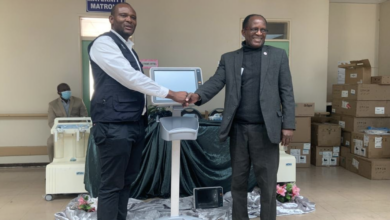NPRC seeks term extension

The National Peace and Reconciliation Commission (NPRC) is in talks with the Ministry of Justice, Legal and Parliamentary Affairs to kick start the process of extending its 10-year term beyond 2023, CITE has learnt.
The NPRC was established to exist for 10 years, starting from August 22, 2013.
But due to delays in enacting the law to operationalise it, the commission only came into effect on January 5, 2018, raising concerns that it would fail to meet its constitutional obligation of delivering post-conflict justice.
In an interview with CITE, Co-Chairperson of the Bulawayo Province Peace Committee, Commissioner Leslie Ncube confirmed the NPRC was looking forward to an extended term, as there seemed to be consensus on the matter.
“In terms of the last visit by the president (Emmerson Mngangagwa) held at the Bulawayo State House, the issue of the term of office of the NPRC was also discussed. We are liaising with the Ministry of Justice, Legal and Parliamentary affairs to kick start the process and there appeared to be consensus in terms of making sure that the NPRC’s term of office should be extended,” he said.
Ncube conceded that when the commission assumed its constitutional responsibility, four years had already elapsed, which necessitated a need for its terms limits to be extended.
“Taking into cognizance that when the commission assumed its constitutional responsibility, four years had been eaten. We are hoping the process is going to be expedited and this is a proposal that actually came from organisations from Matabeleland who felt the remaining three to four years will be insufficient to make sure that peacebuilding work generally comes to fruition,” said the commissioner.
He added that the NPRC’s extension was also an issue that had been discussed extensively by civil society and the government when they drafted their implementation matrix.
But eyebrows were raised when the government ‘somehow’ omitted to extend the commission’s lifespan under the proposed Constitution Amendment (No.2) Bill.
However Ncube was optimistic, the government was working to addressing the issue.
“Yes, this is what we look forward to because in terms of the implementation matrix that we mentioned that issue was raised by some of the civil society organisations that the NPRC’s term of office has to be extended,” said the commissioner.
Three weeks ago at the Bulawayo State House, Permanent Secretary in the Ministry of Justice, Legal and Parliamentary Affairs, Virginia Mabhiza had regretted the omission but said the NPRC and other organisations should have advanced proposals to government, lobbying for its extension.
“We regret the omission of this matter in the proposed Constitution Amendment Bill (No.2) Bill, in fact, it was a realisation we saw, we did not pin much attention to it and was not put into the amendments, which means if nothing is done the NPRC is going to elapse,” she said at the time.
“This is something to be worked on, we have to sit down with the enablers and the beauty of the law-making process is that we can reverse, withdraw or can add some issues depending on the gravity of such issues at certain parliamentary stages. This is a very important issue so we ought to sit down and craft way forward before we see NPRC collapse and expire by 2023. I have given the enables a challenge but as the ministry of justice we also share the blame.”






